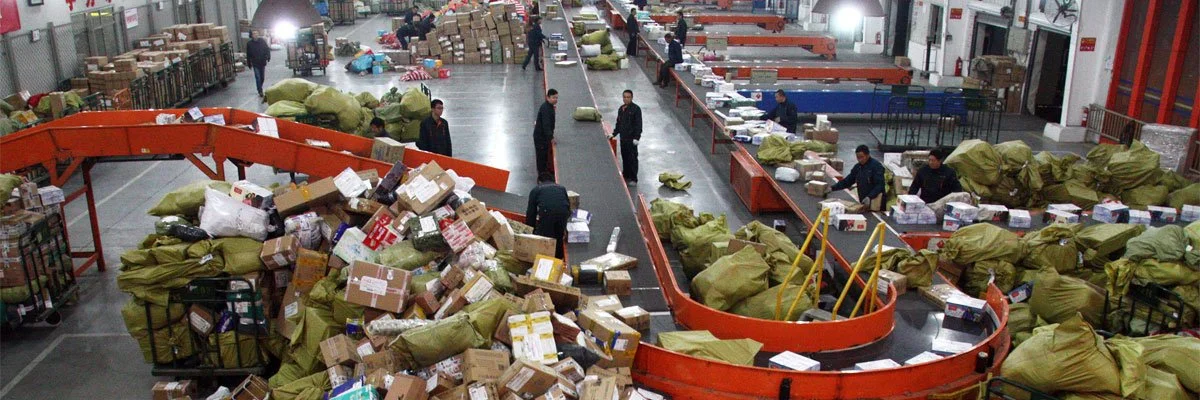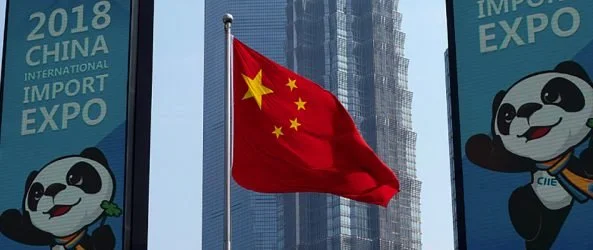
What are you looking for?
Our Complete Archives
Below is a collection of every blog post, infographic, Weekly Skinny, and case study. This collective work just scratches the surface of what we have seen in China and can serve as your guide to this unique consumer market. For even more works on China, you can access our Weekly News here.
Filter By Article Type:
Where are the Christmas Trees Tencent?
‘Tis the season to be jolly. Well maybe not in Langfang, in northern China’s snowy Hebei province where folk can be arrested for selling Christmas apples and Santa suits. The parishioners of the renowned 40-year old Rongguili Church in Guangzhou may not be feeling so festive either after a children’s bible class was raided in the third unregistered Protestant church to be shut down in China this winter. Last year, it was a Chinese university banning Christmas to avoid “corrosive” Western culture that made it into the annual anti-Christmas headlines fuelled by a small brood of emphatic nationalistic types in China.
What We Can Learn from the Rise of Sports in China
Over the past few years, one of the fastest growing trends in China has been sports and fitness. This has led to the growth of sporting products and services, as well as consequential purchases spanning categories as diverse as vitamins and tourism. The trend is being driven by both the Government who realises the health, social, economic and patriotic benefits of sports participation, and consumers who appreciate the upside in health, and are often seeking more from life.
The Complete China Cross Border Ecommerce List
China’s 2019 Ecommerce Laws were finally announced in late November. The laws have increased the single purchase limit from ¥ 2,000 ($288) to ¥5,000 ($720) and the yearly purchase amount increases from ¥20,000 ($2880) to ¥26,000 ($2,745) per year. Cross border purchases that are on the specified list below and fall within the increased limits will be exempted from duties and receive a 30% discount on consumption tax and VAT.
How Best to Target China's Diverse Cities
If you’re already exporting to China, we’re guessing you’re probably also selling to a host of other countries – markets like Dubai and the other six emirates could be on the list. In the UAE, there’s a good chance you’ve engaged some localisation for the country – culturally sensitive and resonant branding & communications, legal & regulatory allowances, logistics & distribution, and possibly even some new product development and packaging. In China, it’s probable that you’ve also localised the mix. But how local is your localisation?
How Not to Market to Chinese Consumers
For the past few years, we’ve been seeing an ascent of Chinese brands playing on retro themes and nostalgia. Whilst many of these brands were relatively unsophisticated in their heyday, they are increasingly striking a chord in today’s cosmopolitan China. State media and brands like Alibaba have been all over the trend launching festivals such as “Tmall China Day” and bringing Chinese fashion brands to New York Fashion week.
China’s 2019 Ecommerce Laws Finally Announced
There has been much uncertainty about China’s new ecommerce laws which will launch in earnest on 1 January 2019. The unknown direction around cross border ecommerce and the daigou trade is likely to have kept a few businesses up at night.
How China's Evolving Home Life is Impacting Marketers
As the old Chinese adage goes, away from home they will judge your clothes and outward appearance. At home, it’s what’s underneath that matters. In Chinese homes, they are increasingly looking at your clothes, and your furniture, drapes and other trappings that have allowed you to imprint your individuality. The role of one’s house has been changing from a functional place to sleep to a place to live, experience and share.
Sissy Boys and Other 'Challenges' With China's Male Gene Pool
The PLA slammed young Chinese males' high failure rates in fitness tests, attributing unhealthy lifestyles, too many fizzy drinks and video games.
Singles' Day 2018: A Beacon of Hope in Uncertain Times
The number of those bearish on the China market have swelled and grown in voice as of late, making this year’s Singles’ Day a particularly intriguing spectacle. Serving as a proverbial yardstick, the surging performance of this year’s festivities surely have not only Alibaba HQ but those in Beijing fretting over economic models breathing slightly easier, if only for the moment.
The Skinny on China's Inaugural International Import Expo (CIIE)
You’ve got to give it to China: This week’s inaugural China International Import Expo (CIIE) in Shanghai – the ‘Canton Fair for exporters’ – has attracted representatives from 85% of the countries that the Olympics attracts, all hoping to sell their wares to China.
What Lies Ahead for Daigou in 2019
China’s daigou are both loved and loathed, depending who you talk to. For Chinese consumers, they deliver quality western products – from vitamins to luxury handbags – that are sometimes unavailable in the Mainland, often at a lower price, and more likely to be authentic. For consumers in places like Australia, they have been known to empty supermarket shelves of products like infant formula, prompting supermarket chain Woolworths to reintroduce the two-tin limit this week.
The Mother of All Singles' Days
11.11 or Singles’ ‘Day’ 2018 officially launched last week, with about 500,000 items available for pre-order on Tmall. The world’s biggest shopping festival has long been a yardstick for Chinese consumer sentiment and spending, and this year it will be watched particularly closely. Sales over the 24-hour period will provide some indication of the impact that slowing GDP and the Trade War is having on consumption – the sector that Beijing hopes will keep the economy chugging along. This year will mark the 10th anniversary of 11.11 and will be Jack Ma’s last before he ‘retires’, so there are plenty of reasons Alibaba will be wanting to blow last year’s $25.3 billion in gross merchandise volume out of the water.
What's Driving China's Rural Revitalisation is What it Means for Brands
Ten years ago, the average dairy farm in China had three cows. With millions of peasants tending postage-stamp sized lots, educating them on basic farming techniques such as responsible pesticide use was nigh impossible. Each batch of milk from each farm needed to be picked up by someone, who’d deliver it to a slightly larger carrier, who’d deliver it to a slightly larger operator, and so on. The fragmented supply chain was inefficient, difficult to track and the number of connection points made it more susceptible to scandals.
The Wacky World of KOLs in China
Welcome to this week’s Skinny on China; we hope it was a great break for those who were off over Golden Week. Aside from the annual inundation of tourist sites, transport hubs and highways, the most talked-about news of the break was the reappearance of China’s most famous actress, Fan Bingbing, who vanished without a trace three months ago.
China’s Ecommerce Duopoly Has Finally Fallen
The brains trust at Amazon are likely to be scratching their heads wondering how that happened. After spending hundreds of millions of dollars and 14 years to wrestle market share from the almighty Alibaba and JD-Tencent-Walmart syndicate, they have managed just a meagre 0.7% share of ecommerce retail in China. Ebay suffered an even worse fate after throwing hundreds of millions at China before effectively giving up on the market in 2006.
Why US Brands Should be Interested in China's Golden Week Tourists
No holiday period provides a better barometer for the state of tourism and general consumer sentiment in China than the October Golden Week. Unlike Chinese New Year when the majority of Chinese return home to their families, October National Day Holiday is all about leisure travel with around 700 million Chinese going on vacation.
China's Correlation Between Video Games and Kittens
Chinese males have an obsession with gaming, so say the numbers. China’s $38 billion gaming market is worth more than four times its movie industry. The country’s infatuation has contributed to eSports becoming a medal event at the 2022 Asian Games and even a possible demonstration sport at the 2024 Paris Olympics. Some estimate that gaming will soon match regular sports for popularity in China.


















